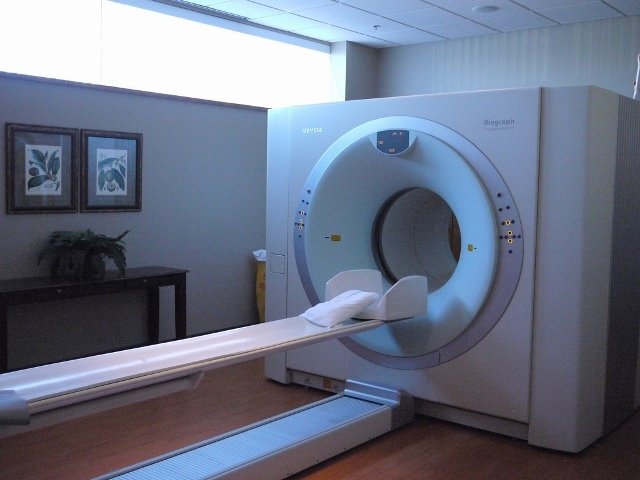Programming language, Human language and The Brain

OVERVIEW
For a long time ago, people have always had the perception that learning a particular programming language is related to learning a new human language, either this is as a result of the syntactic and semantic formation guiding all programming languages which one has to consider and abide thoroughly when writing codes in a particular programming language, just like we do consider when constructing a sentence in human language or the fact that no two programming languages have the same syntactic formation, just like human languages also have different syntactic and semantic rules guiding the formation of a particular human language or the fact that programming language has a language in its postfix as we also have in human language.
In fact, there was once a controversy in the programming world, as a result of a debate prompted by the legislation which proposed a foreign language as a course credit unit for a student who is learning a programming language or replacing a foreign language with a particular programming language.
Although, there were many strong opinions and reactions across the globe, especially, in the software industry. Of course, some developers considered the proposal laudable and some considered it misguided, as they claimed that there are better ways to achieve the aim of increasing one’s competency in computing education.
However, some developers are of the opinion that programming language is not in any way related to human language and as such it will not be a yardstick that determines one’s competency in programming and that programming was much closer to mathematics.
Although, Dijkstra has once said:
An exceptionally good mastery of individual's native tongue is the most important asset of a competent programmer, beside a mathematical inclination.
For some years back, scientist have been carrying out several research in order to confirm if there is any form of relationship between programming language and human languages with respect to the brain function, though the recent and most notable among them is Functional magnetic resonance imaging (FMRI), which analyze different locations in brain and such gives room to compare different cognitive task in brain.
A recent research shows that programmers are using language sections of the brain in order to understand the syntactic and semantic formation of a particular programming language and noticed that little activation is required in other sections of the brain which incline towards mathematical thinking.
Functional magnetic resonance imaging (FMRI)

Siegmund et al (2014) were the first to present a research article titled Understanding Understanding Source Code with Functional Magnetic Resonance Imaging using Functional magnetic resonance imaging (FMRI), in their research work, they analyzed the connection between programming language and other cognitive domains in human brain, like language processing using modern neuro-imaging methods.
(FMRI) was used to monitor only changes in local blood oxygenation, due to a result of brain activity in different regions across the brain. They scanned the brain of some students in computer science department while reading code snippets for comprehension and while reading the same code snippets in order to check for syntax errors without comprehension.
After the investigation, the results showed activation in the classical language networks, this include activation in Wernicke's, Broca's and Geschwind's regions, which resides in the left hemisphere of the human brain.
Overview of Functional magnetic resonance imaging (FMRI)
Functional magnetic resonance imaging is one of the modern neuro-imaging techniques for measuring human brain activity. It measures changes in blood oxygenation and flow that occur with respect to the neural activity.
Research has made it known that when a brain area is more in action, it definitely consumes more oxygen, in order to meet up with this increased demand of oxygen, the rate of blood flow increases to the required area (active area).
FMRI has been widely accepted across the globe, both in the research world and in the clinical world. Its combination with other neuro-imaging techniques such as EEG and NIRS are also encouraged. Of course, some commercial products such as lie detectors are based on fMRI techniques, though research is still growing in this area and I strongly believe that it will soon ripe enough for widespread commercialization.
Other Interesting facts about the brain of a programmer
Researchers have recently started investigating the brains of programmers and have some interesting conclusions:
1. Coding Shapes Your Mental Models
Irrespective of which programming language you start with, the design of a programming language will definitely shape the way you think.
No wonder, Edsger Dijkstra, one of history’s most influential computer scientists, said:
“The tools we use have a profound (and devious) influence on our thinking habits, and, therefore, on our thinking abilities.”
2. Coding Helps Strengthen Brain Health
A Brain is like a muscle that always calls for exercise in order to strengthen it and to make it more active. Anything that requires exercising it is encouraged and programming is one of them since it counts as mental exercise.
A research work published in 2013 concluded that some kinds of mental engagement usually sharpen the brains, especially cognitive activities which always involve learning, reasoning and intellectual difficulty and programming is among them.
Although, one may find it difficult to predict any more demanding cognitive activity and learning-centric at the same time than programming unless more and thorough research is carried out.
At this point, I will conclude by saying it is never too late to start learning how to program, irrespective of any programming language you can lay your hands on, do not hesitate.
No doubt, programming is good for your brain health!
Thanks for reading through, your thoughts are important.
Until my next post,
keep on sending zeroes and ones.
References
1. Siegmund et al (2014).'Understanding Understanding Source Code with Functional Magnetic Resonance Imaging, ACM 978-1-4503-2756-5/14/05
2. How Programming Affects Brain
3. Can Computer Programming Boost Your Brain Power?
4. Scientists Begin Looking at Programmers’ Brains: The Neuroscience of Programming
5. This Is Your Brain On Code, According To Functional MRI Imaging
6. The Smart Girl Workout: Why Coding Is Cardio for Your Brain
7. Hacker’s Brain – The Psychology of Programming
8.The Effects of Computer Programming on the Brain
9.Functional_magnetic_resonance_imaging
All images are from pixabay.com and flickr.com
If you write STEM (Science, Technology, Engineering, and Mathematics) related posts, consider joining #steemSTEM on discord here. If you are from Nigeria, you may want to include the #stemng tag in your post. You can visit this blog by @stemng for more details. You can also check this blog post by @steemstem here and this guideline here for help on how to be a member of @steemstem. Please also check this blog post from @steemstem on the proper use of images devoid of copyright issues here.


Like a seasoned academia presenting a paper, this your thesis is a very informative one.
Now, I know I have to exercise my brain to keep it at an optimum level of production.
Thanks for this explicitly written article.
Thank you too @addempsea, I am glad to read your comment. Hope you are enjoying your weekend?
I am enjoying it, how about you?
Very well sir.
How about those of us that don't write codes? Lol....good job my brother
😂😂😂😂😂😂
I didn't want to laugh. But I couldn't help
Don't forget your little code on steemit. Lol. Nice to see you here sir.
Really interesting discoveries in the brain of programmers.
Yeah for sure, programming is a promising aspect one should start thinking of.
Lovely post bro...
Nice to hear your beautiful thought about programming @cyprianj.
Programmers are world shapers. Definitely, programmers think differently and smarter.
This is a standard research work, you should make a journal out of this. It is well researched and crafted.
Well-done sire
Hmm! Thanks @mrbreeziewrites.
Always a pleasure sire.
Congratulations @noble-noah! You have completed some achievement on Steemit and have been rewarded with new badge(s) :
Click on any badge to view your own Board of Honor on SteemitBoard.
For more information about SteemitBoard, click here
If you no longer want to receive notifications, reply to this comment with the word
STOP